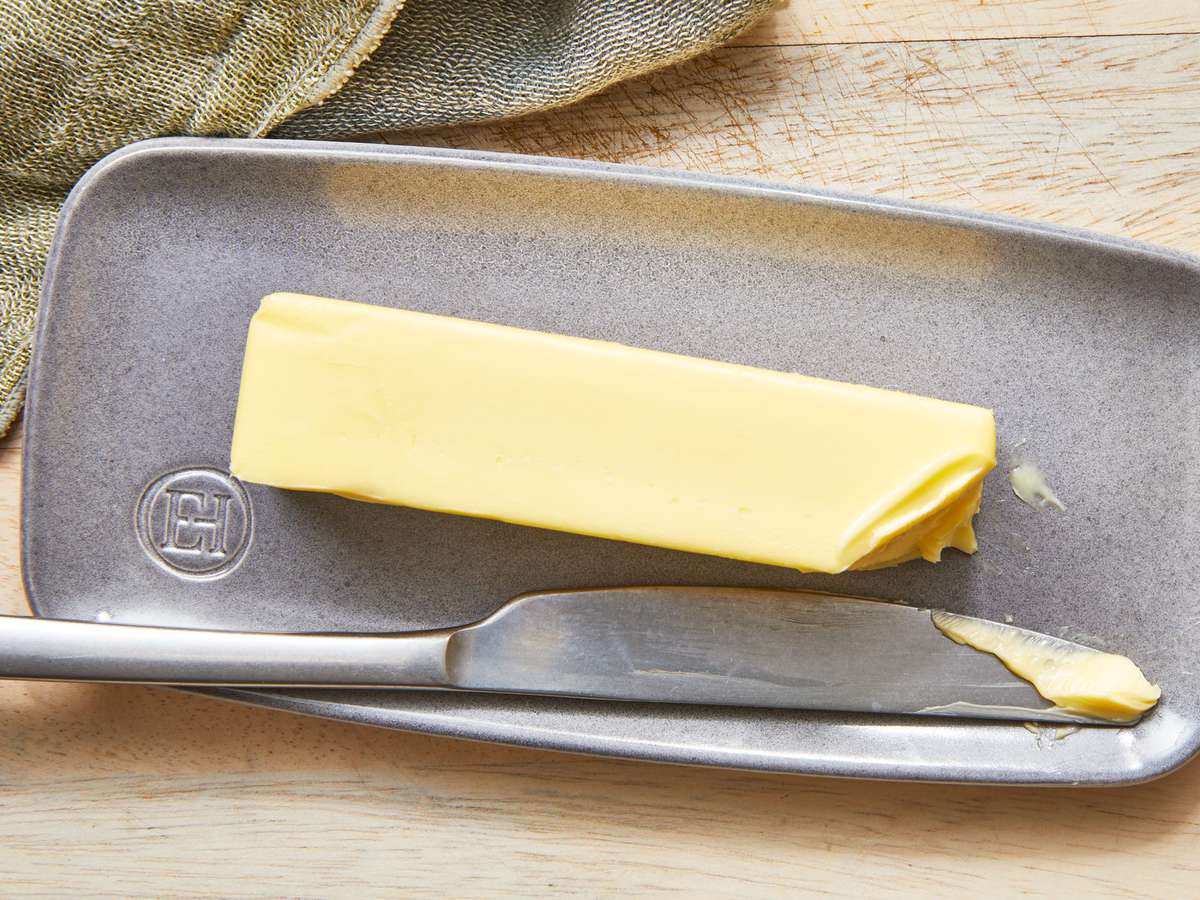Does Butter Go Bad?

Photography: Caitlin Bensel; Food Styling: Torie Cox
Who among us hasn't left butter out on the counter for toast, bought it in bulk on sale, shoved it to the back of the fridge, and have then found ourselves wondering more than once, "Does butter go bad?" Yes, it does. With proper storage, however, butter can last quite awhile.
Butter is mostly fat (at least 80%), which might be bad for our waistline, but is great for shelf life. Fat is difficult for harmful bacteria to penetrate, which is why butter can last longer than other dairy products and can be stored at room temperature.
That said, butter's fat content also means it's at risk of going rancid when exposed to heat, light, and oxygen. Here's how to tell whether your butter has gone bad and how to store it properly so it won't go bad again.
How To Tell If Butter Has Gone Bad
Trust your senses! The first clue that your butter has gone bad will be the smell. Any sour or off-putting smell means it's a goner.
Same goes for taste: If it tastes sour or off, toss it out. And don't worry, a small taste of rancid butter won't hurt you. Of course any visible mold, discoloration, and changes in texture are visible cues that it's time to throw the butter in the trash. As they say, if in doubt, throw it out—there's no reason to risk it.
How to Store Butter
The way you store your butter will have a lot to do with if it goes bad. Follow these guidelines for storing butter properly.
On the counter
The first rule of storing butter on the counter is that you should store as little as possible. Nobody likes spreading cold butter on toast, but butter also goes bad quicker at room temperature. So the USDA recommends only putting out what you will use within one or two days. Unsalted, whipped, or unpasteurized butter is best kept in the fridge, while salted butter is fine at room temperature, although it does last longer in the fridge. Salted butter contains salt (we know, duh!) but salt is a natural preservative that helps it last longer and be less prone to harmful bacteria.
Next, butter should be stored in an airtight, opaque container. If you have the counter space, get a butter crock, which is specifically designed to keep butter fresh at room temperature. You'll also want to store butter away from direct sunlight, the stove, or other sources of heat. Lastly, don't store butter on the counter if the temperature in your kitchen is above 72°F.
In the refrigerator
There is a reason every refrigerator has a butter compartment, and our advice is to use it. Butter can absorb the flavors and odors in a fridge, so store it tightly wrapped in the compartment away from other foods for the best results.
Butter can be stored in the fridge for about three months, after that you might notice a change in quality and freshness. For longer storage, freeze your butter.
In the freezer
Just like the fridge, you'll want to store butter (salted or unsalted) in the freezer tightly wrapped. You should freeze your butter before its use-by date. Store it in its original packaging, and place it inside a zip-top freezer bag.
You can also portion it out. Just tightly wrap each portion in plastic wrap, and then place the portions in a freezer bag.
To thaw, leave it in the fridge overnight to slowly defrost, and use it as you would any butter. According to Land O' Lakes, freezing butter doesn't affect taste or texture, but once thawed, it should be used within a month. U.S. Dairy recommends freezing unsalted butter for a maximum of five months, whereas salted butter can be frozen for up to nine.
Is It Okay To Use Expired Butter?
Expiration dates are tricky. Terms like sell-by, best if used by, and use-by, all mean different things, but they're used to assure quality, not safety. They are a general estimate of how much time you have to use or in the case of sell-by, sell, a product before its quality decreases.
When those dates pass, it doesn't mean the butter has automatically gone bad. Butter, especially when stored in the fridge and freezer, can avoid spoilage longer than other dairy products. Before tossing the butter out after the expiration date, check to see if it smells, looks, and tastes fine. If it does, use it, but do so fairly quickly as it won't last forever.

